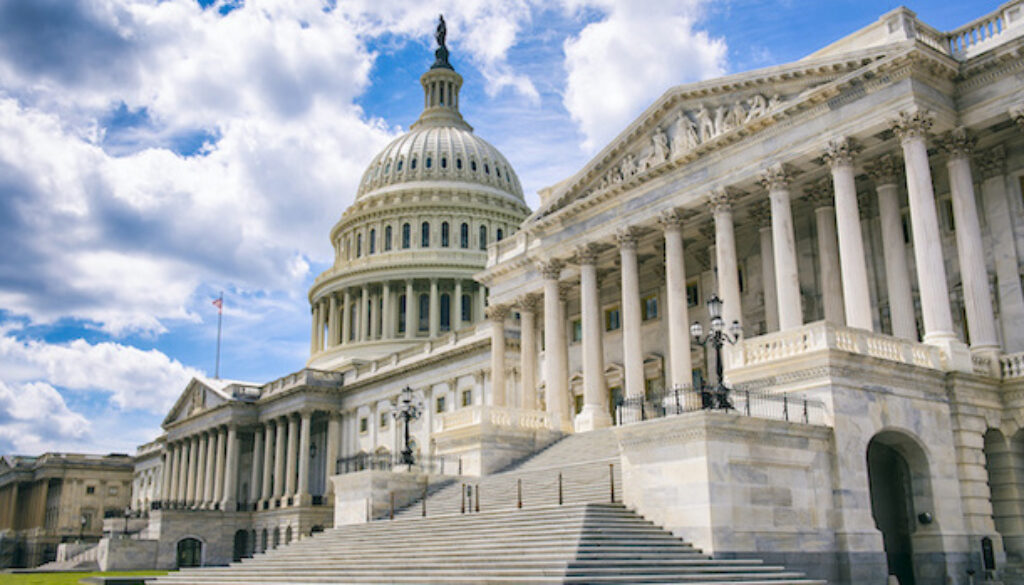A new COVID-19 relief package has passed
A new COVID-19 relief package has passed
The Coronavirus Response and Relief Supplemental Appropriations Act of 2021, a $900 billion relief package to deliver the second round of economic stimulus for individuals, families, and businesses, was signed into law Dec. 27, 2020. The bill provides relief through multiple measures and expands many of the provisions already put into place under the Coronavirus Aid, Relief, and Economic Security Act, including a second round of direct stimulus payments to individuals and families.
Here is what you need to know:
Stimulus payments for individuals and joint taxpayers
The bill includes a second wave of direct stimulus payments for millions of Americans – up to $600 for eligible individuals, $1,200 for joint taxpayers, and an additional $600 for each dependent child under 17. This means a family with two children may receive $2,400.
As of today, there is nothing you need to do to get a stimulus payment. The IRS will begin work to issue stimulus payments using the most up-to-date information they have on file, likely from the 2019 tax return, either by direct deposit or by check.
Need help filing your taxes?
Click here to Book an online appointment
$600 Stimulus Payments Have Started Going Out
How will a taxpayer know if they are eligible to receive a second stimulus payment?
If someone has an adjusted gross income (AGI) of up to $75,000 ($150,000 married filing jointly), they should be eligible for the full amount of the recovery rebate.
As the AGI increases by over $75,000 ($150,000 married filing jointly), the stimulus amount will go down. The stimulus check rebate completely phases out at $99,000 for single taxpayers, $136,500 for those filing as Head of Household, and $198,000 for joint filers with no kids.
The bill also expands stimulus payments to mixed-status households (households with different immigration and citizenship statuses), meaning more households will be immediately eligible for this stimulus than were for the first round. This also may be retroactive, so some individuals that were ineligible for the first stimulus provided under the CARES Act may then be eligible to receive that payment as well.
Those people receiving Social Security retirement, disability, Railroad Retirement, VA, or SSI income, and are not typically required to file a tax return, will again receive a stimulus payment. As in the first round, the IRS will use the information from Form SSA-1099, Form RRB-1099, or the Veterans Administration, to generate a stimulus payment.
Extended unemployment
Unemployment payments will increase by $300 per week and the benefits will be extended until March 14, 2021.
The bill also extends the Pandemic Unemployment Assistance (PUA), which expands unemployment to those who are not usually eligible for regular unemployment insurance benefits. This means that self-employed, freelancers, and anyone with a side business will continue to be eligible for unemployment benefits.
Certain workers who have at least $5,000 per year in self-employment income but are disqualified from receiving PUA because they also have an employer, could also be eligible for an additional $100 per week in unemployment benefits.
Special lookback for Earned Income Tax Credit and Child Tax Credit
This is an especially important provision that has the potential to help workers who experienced lower income in 2020, or received unemployment income in lieu of their regular wages, get bigger tax credits and larger refunds in the coming year.
The special lookback rule will allow lower income individuals to use their earned income from 2019 to determine their Earned Income Tax Credit and the refundable portion of the Child Tax Credit in 2020, since their lower 2020 income could reduce the amount, they are eligible for.
Need help filing your taxes?
Click here to Book an online appointment
The Earned Income Tax Credit is the country’s largest program for working people with low to moderate income. More than 25 million eligible tax filers received federal Earned Income Tax Credit last tax season and the average Earned Income Tax Credit was $2,476 per filer.
Extended student loan forbearance
College students and parents with federal student loans will receive an additional extension on student loan payments and will not be required to make payments on federal student loans until April 1, 2021. This includes both principal and interest payments.
Expanded Paycheck Protection Program (PPP) for small businesses and eligible nonprofits
The legislation provides a second round of payments under the Paycheck Protection Program (PPP).
Self-employed individuals, small businesses, small 501(c)(6) organizations, restaurants, live venues, and EIDL grants will again be eligible. In addition, businesses experiencing severe revenue reductions will have the opportunity to apply for a second PPP loan.
Businesses with 300 or fewer employees that have experienced a 25 percent revenue loss in any 2020 quarter and small 501(c )(6) organizations that have 150 employees or fewer would be eligible for a PPP payment. The PPP also broadens the type of business expenses that can be forgiven under the loan to include supplier costs, allows business expenses paid using PPP proceeds to be tax deductible, and simplifies the loan forgiveness process.
Contractor paid leave
Contractors who were temporarily unable to work due to facility closures and other restrictions could be able to receive reimbursement for paid leave from federal agencies.
Eviction moratorium and rental assistance
The legislation extends the moratorium on evictions under the CARES Act, designed to protect renters from eviction, until Jan. 31, 2021. Families struggling to pay rent or with past due rent could be able to get assistance with paying past due rent and future rent payments, as well as utility bills.
Tax extenders
The legislation includes the permanent passage and, in some cases, multi-year extension of many additional tax provisions, commonly referred to as tax extenders. Tax Extenders provide tax relief and support for families and individuals through various mortgage relief, education, and medical expense relief.
Discover more from My Business Web Space
Subscribe to get the latest posts sent to your email.



